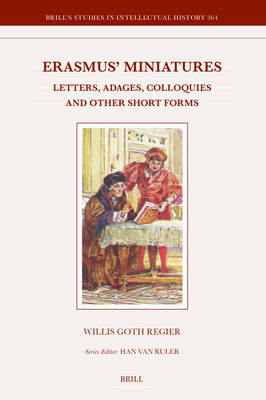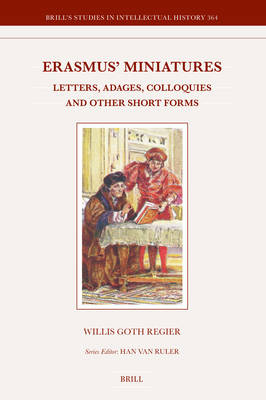
- Afhalen na 1 uur in een winkel met voorraad
- Gratis thuislevering in België vanaf € 30
- Ruim aanbod met 7 miljoen producten
- Afhalen na 1 uur in een winkel met voorraad
- Gratis thuislevering in België vanaf € 30
- Ruim aanbod met 7 miljoen producten
Zoeken
€ 140,45
+ 280 punten
Omschrijving
There is hardly a sixteenth-century genre that Erasmus did not try, often ambitiously. He made big books from little things: proverbs, anecdotes, metaphors, quotations, and textual notes. The works that have withstood the tests of time are satires and edited collections: Praise of Folly, Julius exclusus, the Adagia, letters, and colloquies. There are no better introductions to Erasmus than these, and they share a common emphasis on variety. Erasmus' Miniatures examines his lifelong interest in small genres and his use of them, inserting them into larger works or gradually amassing them in books of a thousand pages. They were written to teach Latin and inculcate Christian values, and remain attractive as the most intimate expressions of his thoughts, moods, hopes, and terrors, and reflections of his times.
Specificaties
Betrokkenen
- Auteur(s):
- Uitgeverij:
Inhoud
- Aantal bladzijden:
- 162
- Taal:
- Engels
- Reeks:
- Reeksnummer:
- nr. 364
Eigenschappen
- Productcode (EAN):
- 9789004710702
- Verschijningsdatum:
- 18/12/2025
- Uitvoering:
- Hardcover
- Formaat:
- Genaaid
- Afmetingen:
- 155 mm x 235 mm

Alleen bij Standaard Boekhandel
+ 280 punten op je klantenkaart van Standaard Boekhandel
Beoordelingen
We publiceren alleen reviews die voldoen aan de voorwaarden voor reviews. Bekijk onze voorwaarden voor reviews.








